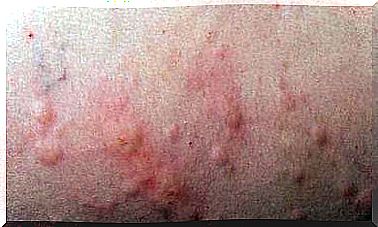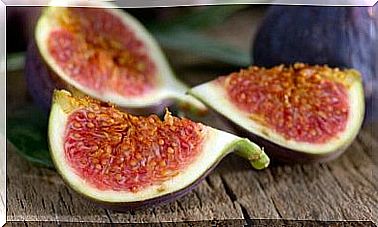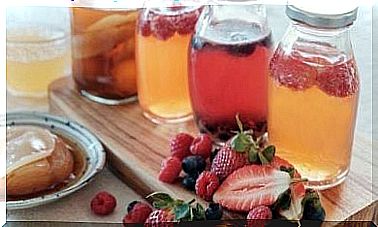What To Eat To Fight Seasonal Allergies?
To avoid seasonal allergy and its symptoms, it is essential to identify the agent that produces the reaction and to avoid it. In addition, there are a few solutions to help you control it.
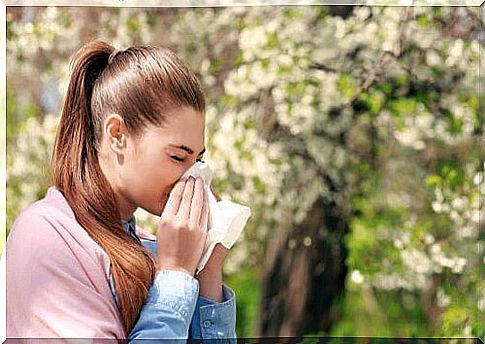
Seasonal allergies are caused by exposure to airborne substances, such as pollen. They occur at certain times of the year.
They are particularly common in spring, summer or fall, depending on the substance causing the allergy.
In fact, you could be allergic to one or more types of pollen and not know it.
When fungal spores are present in the air for long periods of time, they can trigger these symptoms.
Symptoms of seasonal allergy
Here are the most common symptoms:
- Nasal discharge
- Eye irritation
- Congestion
- Phlegm
- Nasal inflammation
- Sneezing and redness
The immune system reacts always reacts when a harmful substance is present in the external environment. However, it may be a foreign substance that has entered your body that is triggering this immune response.
However, you should know that 80% of the elements of your immune system are found in the intestine.
Your body interacts with the outside world by absorbing nutrients from the foods you eat. And also by expelling bacteria, pathogens and undigested food from your body.
The immune system is very sensitive to seasonal allergens. And so, its response manifests as symptoms of defense.
At this point, it is important to have a healthy elimination diet. And avoid a lot of toxic and inflammatory foods for a few weeks, to minimize symptoms.
On the other hand, if the symptoms do not improve after eliminating some of these foods, you can add them again.
On the contrary, if the symptoms go away, you are likely to be sensitive to one of these foods. You should therefore limit its consumption.
Review your diet at the first symptoms of seasonal allergy
There is no specific diet to relieve the symptoms of allergy. But some foods contain nutrients that act as antiallergic.
These are the ones that contain the natural nutrients, such as vitamin C or folic acid, that help reduce symptoms.
Foods with a high concentration of vitamin C
These nutrients have anti-inflammatory properties. They also help decrease symptoms, especially respiratory symptoms, which are common especially in the spring.
- Watercress
- The kiwi
- Broccoli
- Oranges and lemons
- Cauliflower
- Spinach
- The courgette
- The cabbage
Foods Containing Levels of Folic Acid
Among the foods that provide us with the greatest amount of folic acid, we find:
- Lentils
- Chickpeas
- Spinach
- Chestnuts
- Asparagus
- White beans
- The lettuce
- Peas
Foods containing flavonoids
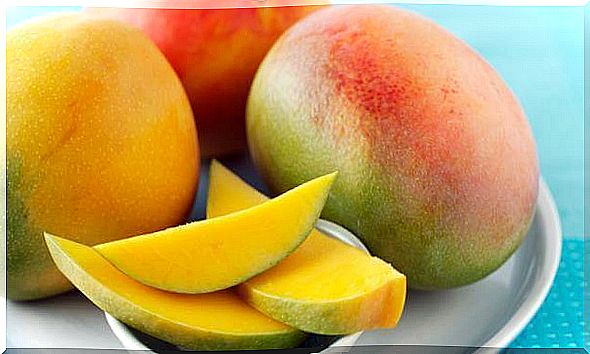
It is recommended to incorporate foods rich in flavonoids, especially quercetin. Because it is a substance that has great antiallergic power. It is found in the following foods:
- Garlic
- The onions
- Apples
- The pear
- The cherries
- The mango
- Oats
The diet should be rich in fruits and vegetables. It is well known that it is necessary to incorporate the regular consumption of vegetables and fruits into your diet.
- 3 servings of vegetables and 2 servings of fruit per day, as recommended by health authorities.
Food advice to avoid seasonal allergies
- Increase foods rich in omega-3 fatty acids and vitamin C.
- Eat 5 servings of fruits and vegetables per day.
- Prepare green tea infusions, as it also acts as an antioxidant.
- Balance the intake of acidic fats (reduce the intake of sunflower oil and other equivalent seeds, and choose olive oil).
- Increase the consumption of fatty fish and eggs.
- Eat probiotic foods, like yogurt.
Essential vitamins and minerals
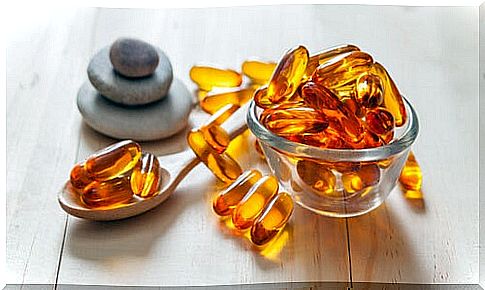
Vitamin E
It helps reduce inflammatory substances responsible for symptoms. To benefit from it, we can consume:
- Complete seeds
- Soybeans
- Vegetable oils
- All green leafy vegetables and fresh vegetables
- Dried fruits
Vitamin C
It is an antioxidant. It helps strengthen tissues prone to allergies and stimulates the immune system.
Beta carotene
It is a pigment that is found in all yellow and orange vegetables.
It is therefore found in carrots, pumpkins, mangoes, apricots.
In the body, beta-carotene is transformed into vitamin A, essential for the protection of the mucous membranes and the repair of the respiratory membranes.
It is also an antioxidant and protects the tissues.
Magnesium
It is a trace element whose function is to relax the muscles of the bronchi, thus improving pulmonary ventilation. It is found in greatest concentration in nuts.
Spicy foods and spices
They can help you open your nasal passages and reduce congestion. These are natural supplements that can be effective in relieving some of the symptoms of seasonal allergy.
Your intake and amounts will depend on your tolerance to spicy foods:
- Wasabi
- Dijon mustard
- The radishes
- Hot peppers
- Turmeric
- Ginger
These foods contain a naturally occurring chemical called capsaicin, which helps expel allergens through sweating and sneezing.
They are therefore very effective in relieving congestion and reducing inflammation.
Turmeric
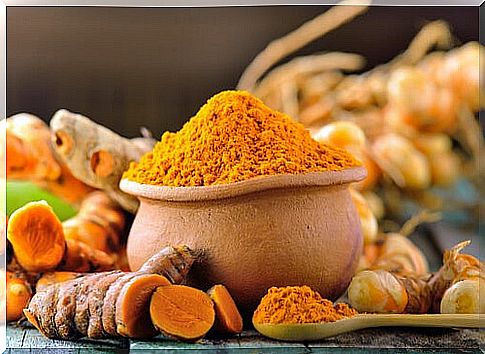
It is a yellow-colored spice that stands out for its curcumin content, an active ingredient with strong antioxidant and anti-inflammatory power.
It acts as a decongestant to relieve the allergic reaction. You can make the following preparation to benefit from turmeric.
Ingredients
- 1 tablespoon of ground turmeric (10 g)
- 1 glass of milk (200 ml)
Preparation
- Heat the milk and add the turmeric powder.
- Mix well and drink once a day to relieve allergy symptoms.
Ginger for seasonal allergies
It has many anti-inflammatory and antioxidant properties that make it a powerful antiallergic.
It helps clear the airways and helps prevent and relieve asthma symptoms.
Ingredients
- 1 cup of water
- 1 teaspoon of ground ginger (10 g) or 4 thin slices of root
Preparation
- Heat a cup of water and, when it boils, add the ginger (in whatever shape you prefer).
- Leave to infuse for 5 minutes, filter and drink.
- You can take up to two cups a day to relieve congestion.
By following all of these tips, your symptoms should improve. If you do not notice any changes after a few days, it is advisable to see your family doctor for medication for seasonal allergies.
